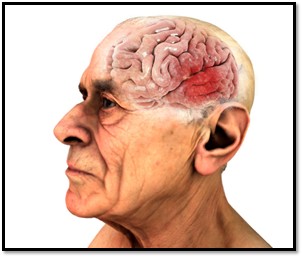
How the Brain Changes with Age
Your brain is one of the most vital parts of your body. It's small but mighty, responsible for controlling everything from your ability to think to your ability to move. Like any other part of the body, our brain physically changes with age. Those physical changes may come with some cognitive changes, but it's essential to understand what age-related changes are regular and what signs could signal something more serious.
How the Brain Functions
Your brain acts as the command center for the rest of your body. It's connected to the spinal cord and is made of soft tissues and nerves. There are three main parts of the brain: cerebrum, cerebellum, and brain stem. The cerebrum is the outer part of the brain. It controls your senses as well as your ability to read, speak and learn. It's also responsible for your ability to plan muscle movements. The cerebellum is the back of the brain. This part of the brain is responsible for muscle control, posture, equilibrium, balance, and coordination. The brain stem is the bottom of the brain that connects to the spinal cord. This part of the brain controls body functions like breathing and heartbeat.
Age-Related Brain Changes
As you age, the brain shrinks, blood flow to the brain decreases, and specific nerve cells between the brain regions may become less effective. The brain may also begin to respond differently to injuries and diseases with age. While these brain changes may affect cognitive functions, the brain's natural aging doesn't put an extreme hindrance on older adults. For example, it may take an older adult slightly longer to memorize a complex idea, but according to the National Institute on Aging, if given enough time, older adults can score just as well on a tough memory test as younger adults.
Common Brain-Related Conditions in Seniors
While it's common to experience changes in your cognitive abilities to complete tasks, extreme mental lapse or fogginess could be signs of a more severe condition.
- Dementia- Dementia and Alzheimer's disease is probably the most commonly associated brain-related condition in older adults. Dementia refers to a group of conditions that interferes with a person's ability to think and socialize. It often impairs at least two brain functions and causes symptoms such as memory loss or confusion.
- Delirium- Delirium refers to any disturbance of the brain that causes extreme confusion or a lack of awareness. Delirium is usually reversible and is most commonly caused by substance abuse or withdrawals and sleep deprivation.
- Depression- Depression can affect people of all ages, but it can lead to confusion and has been linked to increasing the risk of developing dementia. Depression is more than just feeling sad. It is a disorder that inhibits a person from living their daily life. Doctors can treat depression, but it can go unnoticed as the signs of depression, such as weight loss or social isolation, often contribute to other conditions in seniors.
- Brain injuries- If you experience head trauma and start feeling confused or suffer headaches, it's possible you have a brain injury. Brain injuries can happen at any age, but they are common among older adults who are more prone to falling and hitting their heads. Brain injuries can range from mild to severe, but a doctor should examine them as soon as possible.
If you are experiencing symptoms of any of the described conditions, talk to your doctor to learn if you may be suffering from something more severe than the average aging brain.
How Visiting Angels Can Help
If you or a loved one lives with a cognitive disorder and need help completing daily tasks at home, Visiting Angels Wayzata can help. Our compassionate caregivers assist seniors with light housekeeping, meal preparation, mobility, personal grooming, bathing, medication reminders, transportation, and more. Our Wayzata office serves those in Minneapolis and the surrounding West and Southwest communities. If you'd like to learn more about our services, you can fill out a form online or give us a call at 952.935.0789.
